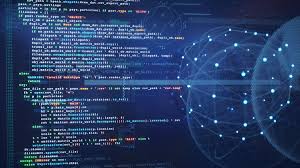info@gladsme.in
+91.8891968718
Mastering Python: A Comprehensive Guide to Python Programming
Mastering Python: A Comprehensive Guide to Python Programming

Welcome to the world of Python programming! Whether you're a beginner taking your first steps into coding or an experienced developer looking to expand your skill set, Python is an excellent language to learn and master. In this comprehensive guide, we'll explore everything you need to know to become proficient in Python programming.
Why Python?
Python is renowned for its simplicity and readability, making it an ideal language for beginners. Its versatility extends from web development to data analysis, scientific computing, artificial intelligence, and beyond. Python's extensive libraries and frameworks provide developers with powerful tools to tackle various projects efficiently.
Getting Started with Python
Before diving into coding, let's set up our development environment. You can install Python on your system by downloading the latest version from the official Python website or using package managers like pip. Additionally, consider using an integrated development environment (IDE) such as PyCharm, VS Code, or Jupyter Notebook to write and execute Python code seamlessly.
Basic Syntax and Data Types
Python's syntax is straightforward and easy to understand. We'll cover fundamental concepts like variables, data types (such as integers, floats, strings, lists, tuples, dictionaries), operators, and control flow statements (if, else, elif, loops).
Functions and Modules
Functions allow us to organize code into reusable blocks, promoting modularity and readability. We'll learn how to define and call functions, work with function arguments, and explore the concept of scope. Additionally, we'll delve into modules and packages, enabling us to organize our code into separate files for better organization and maintainability.
Object-Oriented Programming (OOP)
Python supports object-oriented programming paradigms, allowing us to create classes and objects to model real-world entities. We'll explore concepts like inheritance, encapsulation, and polymorphism, which are central to building robust and scalable applications.
File Handling and Exception Handling
Working with files is a common task in programming. We'll learn how to read from and write to files using Python's file handling capabilities. Additionally, we'll cover exception handling to gracefully manage errors and unexpected behaviors in our code.
Advanced Topics
Once we've mastered the basics, we'll delve into more advanced topics such as working with databases using SQL and NoSQL, web development with frameworks like Django and Flask, data analysis and visualization with libraries like Pandas and Matplotlib, and machine learning with scikit-learn and TensorFlow.
Congratulations! You've completed our comprehensive guide to Python programming. Armed with this knowledge, you're well-equipped to tackle a wide range of projects and dive deeper into specific areas that interest you. Keep coding, exploring, and pushing the boundaries of what you can achieve with Python!
Related Blogs

The Importance of Data Structures in Software Development
Read More...
Exploring Machine Learning Algorithms: A Beginner's Guide
Read More...
The Evolution of Programming Languages: From Assembly to Rust
Read More...
Understanding Big O Notation: A Guide for Developers
Read More...Subscribe for our Newsletter
Subscribe to elevate your software game! Stay updated on the latest trends, coding insights, and exclusive promotions with our newsletter.
